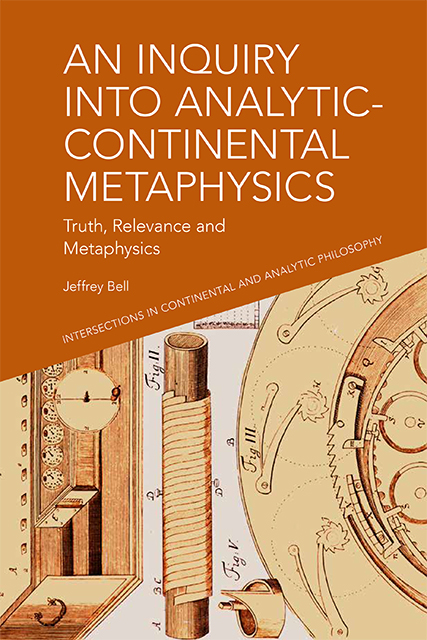Book contents
- Frontmatter
- List of Contents
- Acknowledgements
- Introduction
- §1 Problem of the New
- §2 Problem of Relations
- §3 Problem of Emergence
- §4 Problem of One and Many
- §5 Plato and the Third Man Argument
- §6 Bradley and the Problem of Relations
- §7 Moore, Russell and the Birth of Analytic Philosophy
- §8 Russell and Deleuze on Leibniz
- §9 On Problematic Fields
- §10 Kant and Problematic Ideas
- §11 Armstrong and Lewis on the Problem of One and Many
- 12 Determinables and Determinates
- 13 The Limits of Representational Thought
- 14 Learning from a Cup of Coffee
- 15 Carnap and the Fate of Metaphysics
- 16 Truth and Relevance
- Conclusion
- Bibliography
- Index
§11 - Armstrong and Lewis on the Problem of One and Many
Published online by Cambridge University Press: 25 October 2023
- Frontmatter
- List of Contents
- Acknowledgements
- Introduction
- §1 Problem of the New
- §2 Problem of Relations
- §3 Problem of Emergence
- §4 Problem of One and Many
- §5 Plato and the Third Man Argument
- §6 Bradley and the Problem of Relations
- §7 Moore, Russell and the Birth of Analytic Philosophy
- §8 Russell and Deleuze on Leibniz
- §9 On Problematic Fields
- §10 Kant and Problematic Ideas
- §11 Armstrong and Lewis on the Problem of One and Many
- 12 Determinables and Determinates
- 13 The Limits of Representational Thought
- 14 Learning from a Cup of Coffee
- 15 Carnap and the Fate of Metaphysics
- 16 Truth and Relevance
- Conclusion
- Bibliography
- Index
Summary
1. Kant's Transcendental Illusion
In the previous section we began with Kant's use of the term Idea. As he himself admitted, he borrowed the term from Plato because an Idea for Kant, as for Plato, is not to be confused with any concrete, determinate particulars, with anything given in experience. As Kant further elaborated upon this point, an Idea comes to be understood as a problem without a solution. This became most clear in Kant's efforts to address the antinomies.
It was in our discussion of the antinomies that our focus shifted to the problematic nature of the Idea, or what we have called the problematic Idea. In short, Kant was concerned with the conditions of possible experience, which meant, as we saw, that possible experiences are identified with already actualised experiences, and hence with the determinate and extensive nature of an actualised, objective experience. With the shift of focus to problematic Ideas, by contrast, we were concerned, following Deleuze, with the conditions of real experience, by which was meant the intensive, differential (following Leibniz) conditions for an experience that does not resemble that which conditions it. Stating this point differently and in reference to Kant’s transcendental illusion, which consisted of confusing the conditioned with the conditions, we must not succumb to the illusion of assuming that the conditions for experience resemble conditioned experience. This discussion of Kant's transcendental illusion led us, finally, to contrasting understandings of totality. For Kant, totality is an ideal, an infinite synthesis that only a divine understanding could perform, and as a result we are to understand experience and the pursuit of knowledge as if the absolute totality were real and that which guides and conditions our enquiry. From the perspective of problematic Ideas, by contrast, the totality is an intensive, processual whole, a differential unconscious (to use our Leibnizian terminology), that is, as Deleuze and Guattari put it, ‘a process without goal, but that attains completion as such’ (1977, 370). From this perspective, it is the determinate, extensive totalities and unities that are conditioned by this processual completion and whole that then come to be understood as if they were unconditioned realities.
At this point a critic may, with good reason, accuse us of falling into a version of the transcendental illusion we have just charged Kant with.
- Type
- Chapter
- Information
- An Inquiry into Analytic-Continental MetaphysicsTruth, Relevance and Metaphysics, pp. 99 - 114Publisher: Edinburgh University PressPrint publication year: 2022

